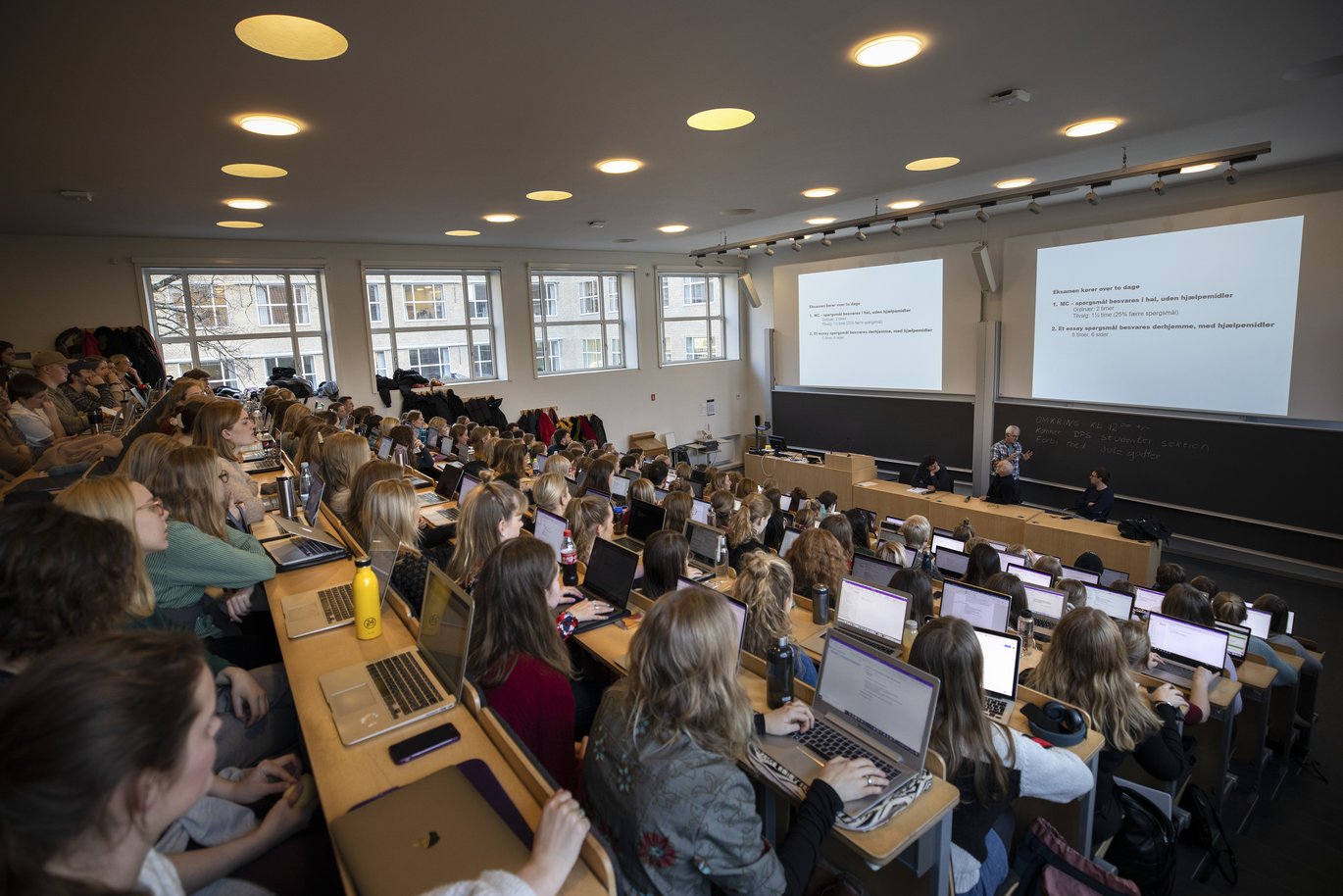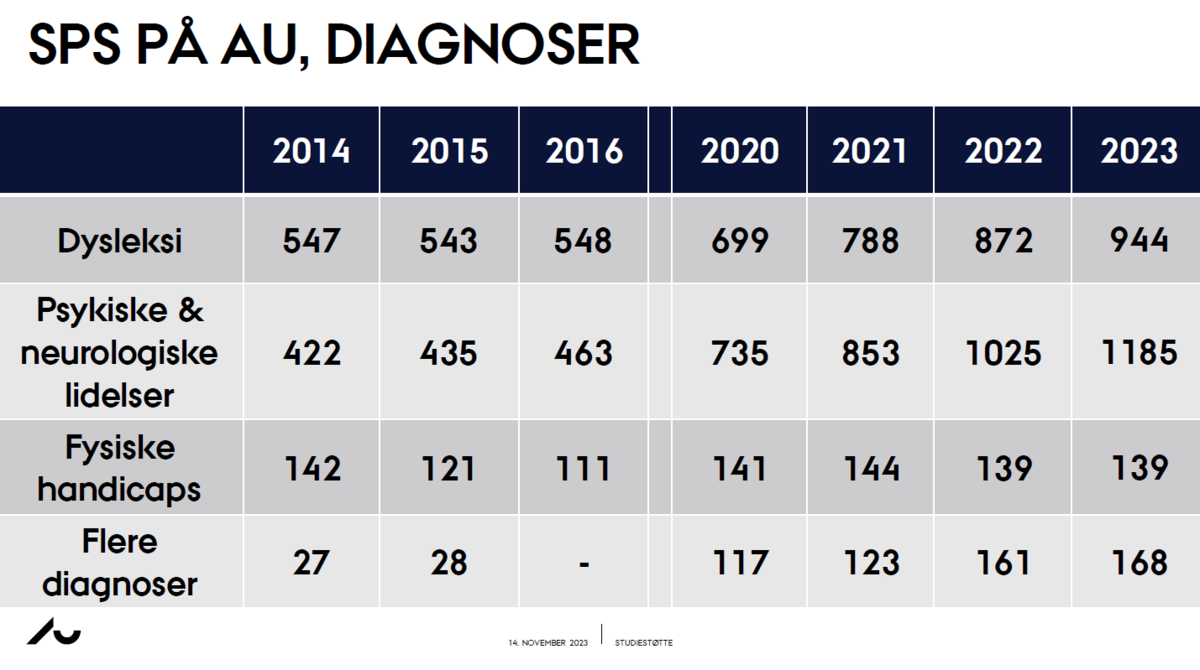The number of AU students receiving special educational support has doubled in ten years
The number of students at Aarhus University who need special educational support (SPS) continues to increase, year after year. Most of the students who get SPS have dyslexia, or psychological and neurological conditions.

The number of students at Aarhus University who receive special educational support has doubled. Support is available to students to with functional impairments or disabilities like dyslexia, psychological and neurological conditions or physical disabilities.
Ten years ago, 1,138 students – at the time equivalent to 3 percent of the AU student body – received special educational support (SPS). Now that number has doubled: 2,100 AU students receive SPS, which is more than 6 percent of AU’s current student body.
While support for students with physical disabilities has remained at a low and stable level for many years, the number of students who receive support due to dyslexia and psychological and neurological conditions continues to increase dramatically. In 2020, 699 students with dyslexia received SPS at AU; in 2023; the number increased to 944 in 2023. Similarly, 735 students with psychological and neurological conditions received support in2020 – in 2023, the number was 1,185.

There’s a lot of variation in when students discover they need support, Jens Bundgaard explained. He’s the head of the unit that deals with SU (student grants and loans), SPs and the Dual Career program. Over half of the students who start a university degree programme and get SPS for a psychological condition have never received this kind of support before, he said. Whereas
“in relation to dyslexia, there are significantly more students who become aware of their diagnosis before starting at university than after enrolment,” he added. “The opposite is the case for the group of students with psychological or neurological impairments.”
One in ten students in Denmark has a functional impairment
Nationwide, 11.2 percent of all students has a registered functional impairment, according to the latest figures from 2020. This is twice as many as ten years ago – from about five percent in 2014. If we zoom in on students in higher education, the percentage is 9.1.
Back in 2010, only three percent of Danish students had a registered functional impairment: 6,238 individuals. Today, that figure is 21,106.
In January, Minister for Higher Education and Science Christina Egelund and Minister for Children and Education Mattias Tesfaye were summoned to a consultation due to the long waits students face when applying for SPS. At the consultation, Mattias Tesfaye said that in 2017, 17,000 applications for SPS were submitted from students in higher education, while in 2022 the figure had climbed to 65,000.
“That’s really a huge increase,” the minister commented.
Translated by Lenore Messick.

